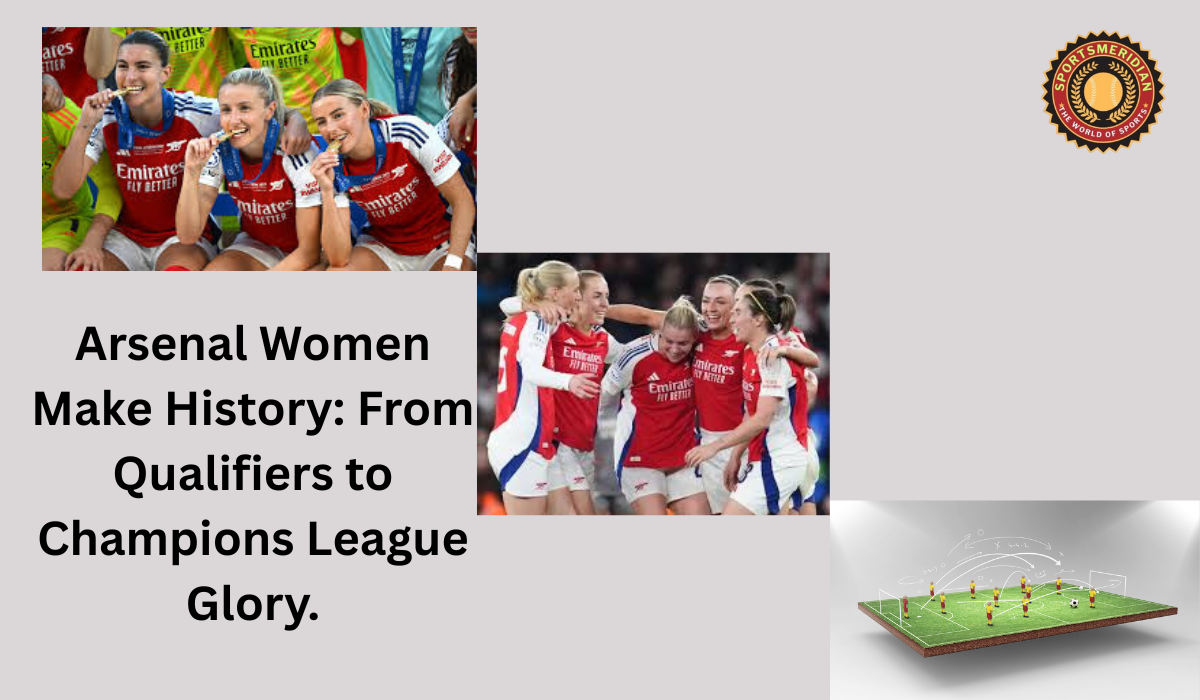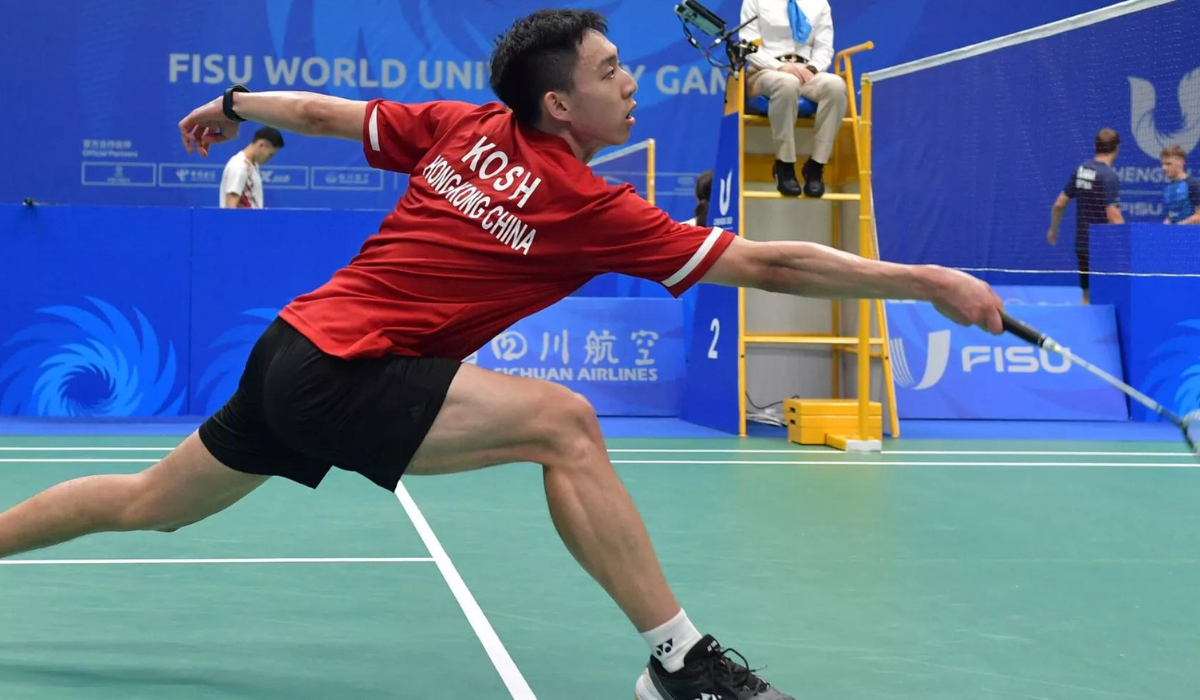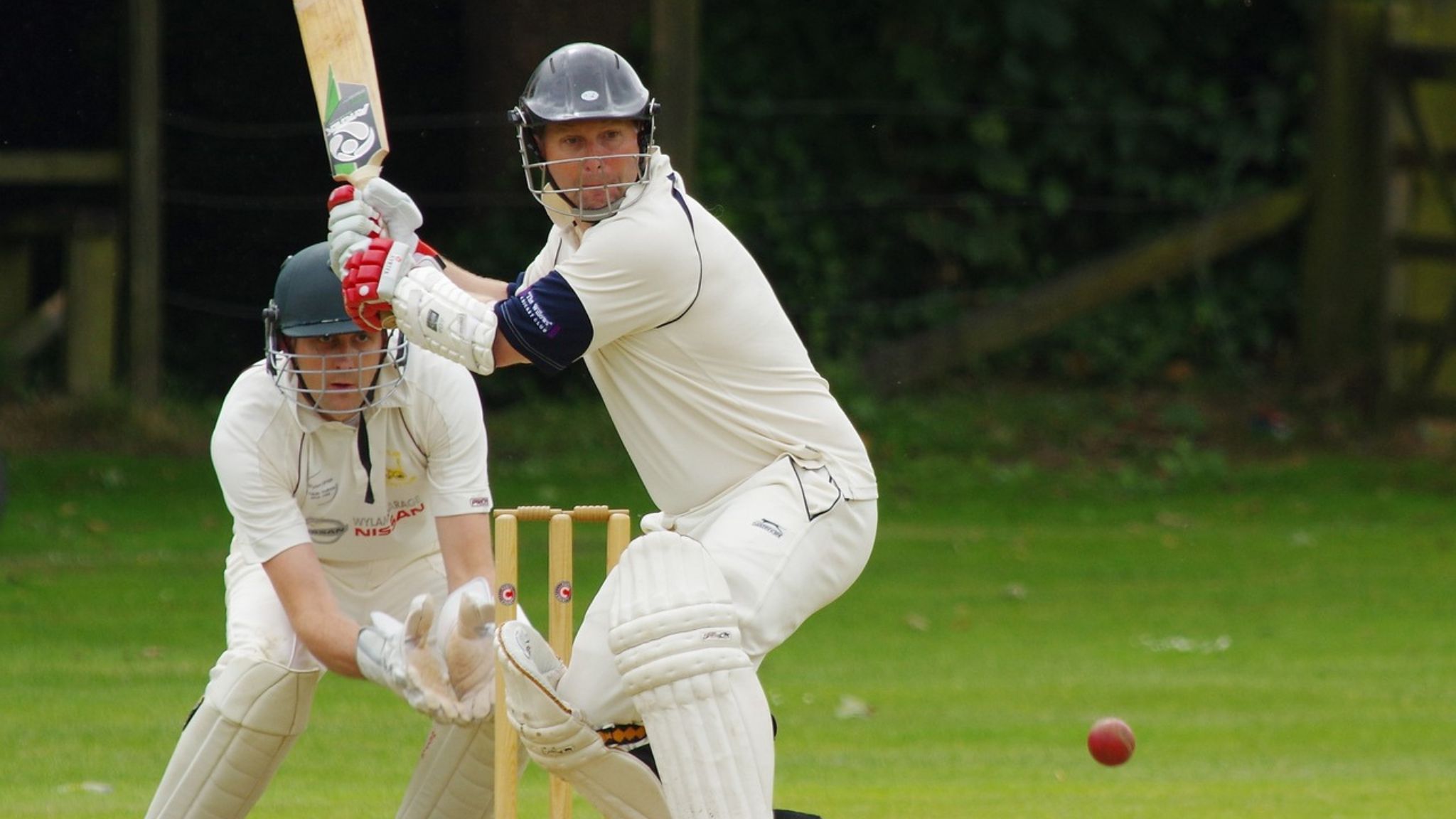Arsenal Women have etched their name into football history by achieving what no other club has done before — winning the UEFA Women’s Champions League after starting their journey from the very first qualifying round. In a season marked by early challenges, managerial changes, and fierce competition, the Gunners defied the odds with resilience, tactical brilliance, and unshakable belief. Under head coach Ruben Slegers, the team battled through 15 intense matches, culminating in a glorious victory over Barcelona in the final. This historic triumph is not just a win for the club, but a landmark moment for women’s football worldwide.
This triumph was not just about winning a trophy; it was about defying expectations, rewriting narratives, and restoring Arsenal’s place among Europe’s elite.
Table of Contents
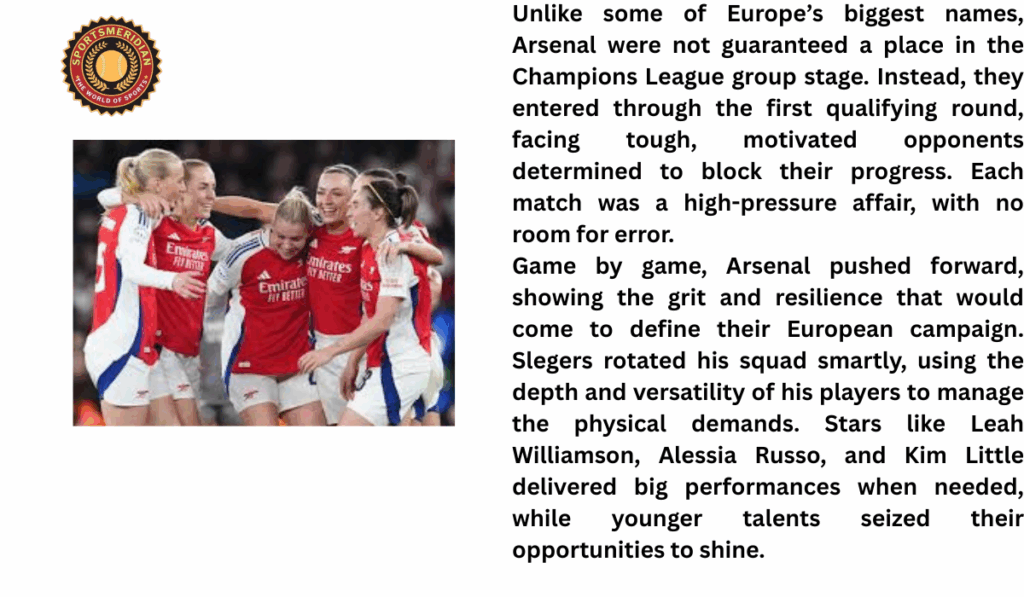
A Turbulent Start
The 2024–25 season did not begin smoothly for Arsenal Women. Amid fan unrest and underwhelming performances, long-time manager Jonas Eidevall stepped down, leaving the team in a state of flux. There was uncertainty on and off the pitch — a talented squad, yes, but one struggling to find cohesion and direction.
Into this uncertain situation stepped Ruben Slegers, initially appointed as interim head coach. Slegers, known for his calm demeanor and tactical intelligence, worked quietly to stabilize the squad. By January, his impact was clear: Arsenal announced his permanent appointment, entrusting him to guide the team forward. His task was daunting — not only was he expected to navigate a grueling domestic schedule, but Arsenal’s path in Europe was anything but straightforward.
Unlike some of Europe’s biggest names, Arsenal were not guaranteed a place in the Champions League group stage. Instead, they entered through the first qualifying round, facing tough, motivated opponents determined to block their progress. Each match was a high-pressure affair, with no room for error.
Game by game, Arsenal pushed forward, showing the grit and resilience that would come to define their European campaign. Slegers rotated his squad smartly, using the depth and versatility of his players to manage the physical demands. Stars like Leah Williamson, Alessia Russo, and Kim Little delivered big performances when needed, while younger talents seized their opportunities to shine.
By the time they reached the group stage, Arsenal were already battle-hardened — but the challenges only intensified. Drawn into a tough group alongside established European powers, they had to fight for every point. It was here that Slegers’ tactical flexibility became crucial: Arsenal switched formations, adjusted pressing strategies, and remained adaptable depending on the opponent.
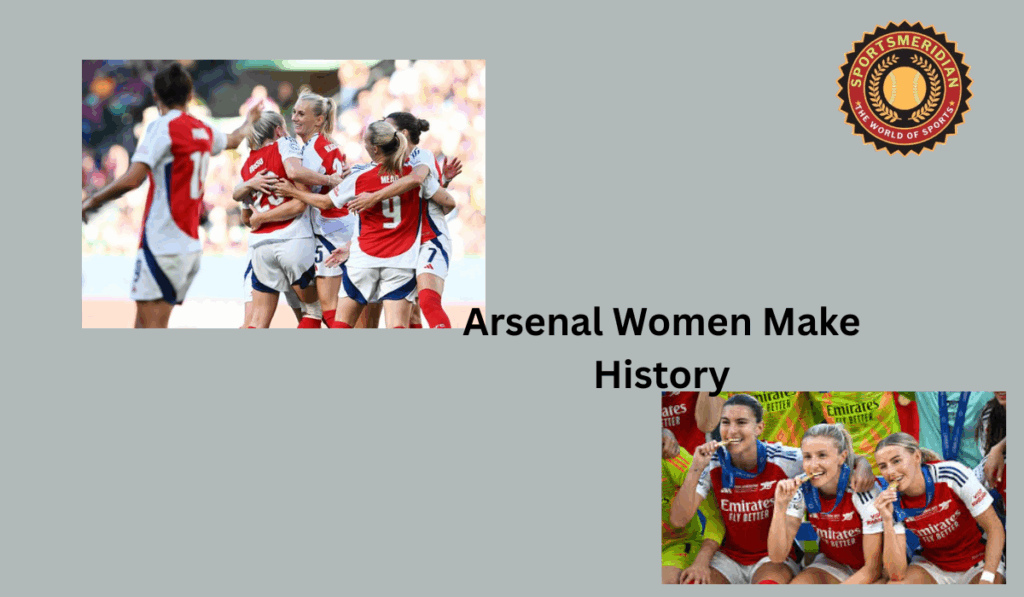
The Knockouts: Belief Builds
The knockout rounds brought even more drama. Arsenal faced world-class teams with European pedigree, including defending champions and domestic title-winners. Yet at every stage, they found a way. Whether through dramatic late goals, penalty shootout heroics, or rock-solid defensive performances, Arsenal continued to defy expectations.
One of the most defining moments came in the semifinals, where they overcame a first-leg deficit to surge into the final. The team’s belief was unshakable; the fans began to sense something special unfolding. By the time the final rolled around, Arsenal were not just underdogs — they were a team on a mission.
Lisbon: A Night to Remember
The setting for the final was Lisbon’s iconic Estádio José Alvalade. The city buzzed with anticipation all day, with thousands of Barcelona fans gathering in the streets, confident their team would secure yet another European crown. Barcelona, after all, were no strangers to the big stage.
But Arsenal’s supporters had traveled in large numbers too. On Lisbon’s famous Pink Street, they sang, chanted, and celebrated the team’s remarkable run to the final. Many wore shirts bearing the names of their heroes: Williamson, Russo, Blackstenius, and Little. The connection between the fans and the squad was clear — they had ridden this rollercoaster together.
Inside the stadium, the atmosphere was electric. Arsenal’s players walked out to a sea of noise and color, knowing they were just 90 minutes away from making history.
The Final: A Battle of Nerves and Heart
From the first whistle, Arsenal approached the match with courage. Slegers had urged his players to be bold, and they responded. They pressed high, passed with precision, and created several promising chances in the first half. However, despite their dominance, the breakthrough remained elusive, with Barcelona’s defense holding firm.
In the second half, Barcelona upped the pressure. They began to control possession and forced Arsenal to defend deep. For a tense 20-minute stretch, it seemed the momentum might swing away from the English side. Yet Arsenal’s defense, marshaled brilliantly by Leah Williamson, stood tall. Goalkeeper Manu Zinsberger made crucial saves to keep the score level.
Then came the decisive moment. Late in the second half, Swedish striker Stina Blackstenius latched onto a perfectly weighted through ball, breaking past the Barcelona defense and calmly slotting the ball past the goalkeeper. The Arsenal end of the stadium erupted in jubilation, players and fans alike sensing that destiny was finally within reach.
An Emotional Finale
As the final whistle blew, the Arsenal bench emptied onto the field. Players collapsed to their knees, hugged teammates, and ran toward the fans who had supported them all the way. Some cried tears of joy, others laughed in disbelief.
Co-owner Josh Kroenke, who had flown in from Denver, celebrated alongside executive vice-chair Tim Lewis, managing director Richard Garlick, and director of women’s football Clare Wheatley. There was also a touching moment as former players from Arsenal’s 2007 Champions League-winning side joined the celebrations, bridging past and present.
The club had brought a special noticeboard from the Sobha Realty Training Centre — covered in messages of support from fans — all the way to Lisbon. It symbolized how this victory belonged not just to the 11 players on the pitch, but to the entire Arsenal family.
Historic Win:
This win is more than just a trophy. It is a statement. Arsenal Women have reestablished themselves as a European powerhouse, proving they can compete and win against the very best. For Ruben Slegers, it cements his reputation as a top-tier coach; for the players, it marks the crowning achievement of their careers so far.
For the fans, it is a moment to cherish forever — a story they will tell for years to come about the season when their team started from the very bottom and climbed all the way to the summit of Europe.


